
Recently Viewed

 Compact Stainless Steel Dual Hob Mounted Pre Rinse Unit - T-3M53007-C
Compact Stainless Steel Dual Hob Mounted Pre Rinse Unit - T-3M53007-C

 Compact Dual Bench Mount Pre-Rinse with 12" Pot Filler - T-3M53058-C
Compact Dual Bench Mount Pre-Rinse with 12" Pot Filler - T-3M53058-C

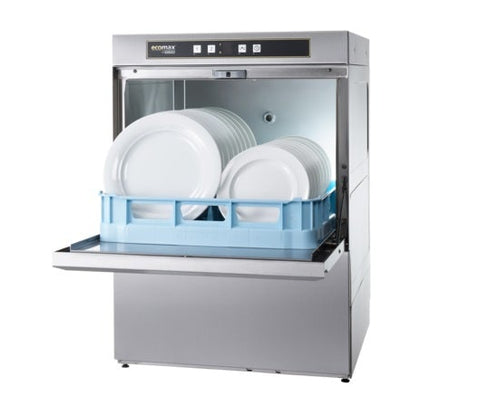

 Hobart ECOMAX Glass / Dishwasher - 500X500 Racks - ECOMAX504-C
Hobart ECOMAX Glass / Dishwasher - 500X500 Racks - ECOMAX504-C
576(W) x 820(H) x 604(D)mm
600(W) x 820(H) x 600(D)mm

 Compact Dual Bench Mount Pre-Rinse with 6" Pot Filler - T-3M53015-C
Compact Dual Bench Mount Pre-Rinse with 6" Pot Filler - T-3M53015-C
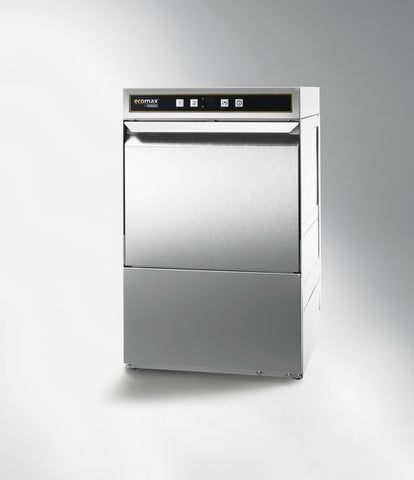

 Hobart ECOMAX Compact Glasswasher - ECOMAX404-C
Hobart ECOMAX Compact Glasswasher - ECOMAX404-C
426(W) x 850(H) x 524(D)mm
436(W) x 850(H) x 534(D)mm

 Stainless Steel Variable Trigger Valve and Handle - T-3M2951
Stainless Steel Variable Trigger Valve and Handle - T-3M2951
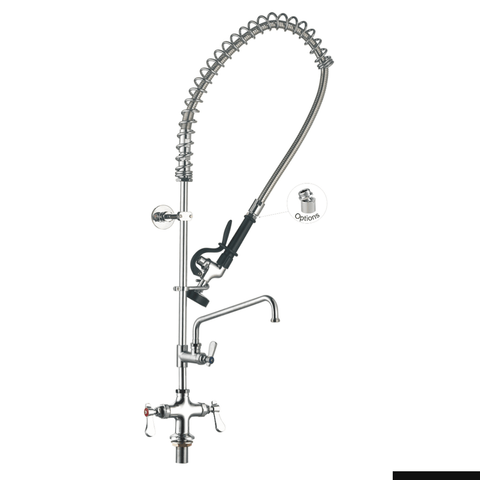

 Sunmixer Pre Rinse Unit with Add-on faucet and 305mm Swing Nozzle T98001-2
Sunmixer Pre Rinse Unit with Add-on faucet and 305mm Swing Nozzle T98001-2
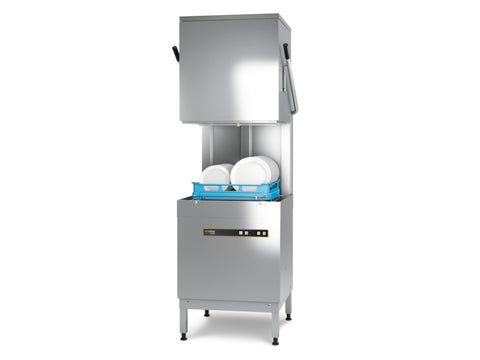

 Hobart ECOMAX Single Phase 15Amp Dishwasher - ECOMAX604
Hobart ECOMAX Single Phase 15Amp Dishwasher - ECOMAX604
711(W) x 1480(H) x 815(D)mm
713(W) x 1480(H) x 742(D)mm

 Sunmixer Pre Rinse Unit with Add-on Faucet and 152mm Swing Nozzle T98001MN-2C
Sunmixer Pre Rinse Unit with Add-on Faucet and 152mm Swing Nozzle T98001MN-2C

 Sunmixer Pre Rinse Unit with Add-on Faucet and 152mm Swing Nozzle T98001MN-2
Sunmixer Pre Rinse Unit with Add-on Faucet and 152mm Swing Nozzle T98001MN-2
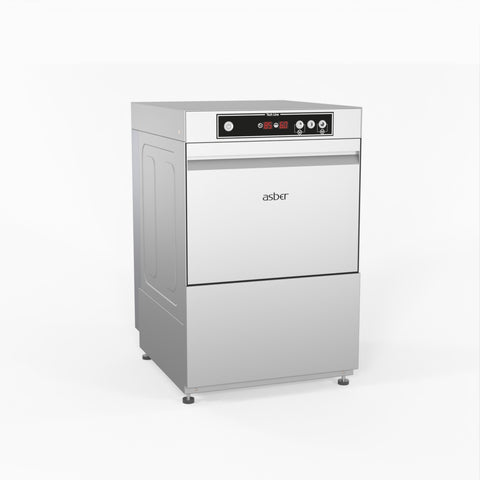

 Asber Tech Line Underbench Glass/Dishwasher GE-400BDD
Asber Tech Line Underbench Glass/Dishwasher GE-400BDD
470(W) x 525(D) x 720(H)mm
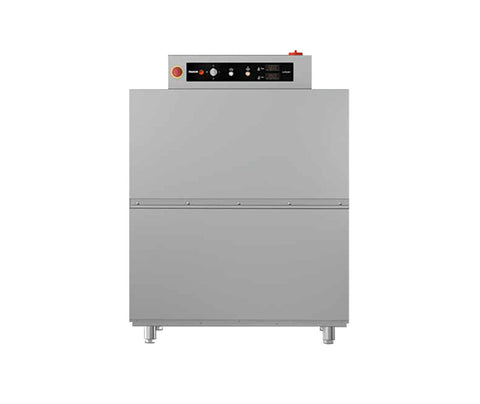

 Fagor Electric Conveyor Dishwasher CCO-120DCW
Fagor Electric Conveyor Dishwasher CCO-120DCW
1180(W) x 790(D) x 1550(H)mm
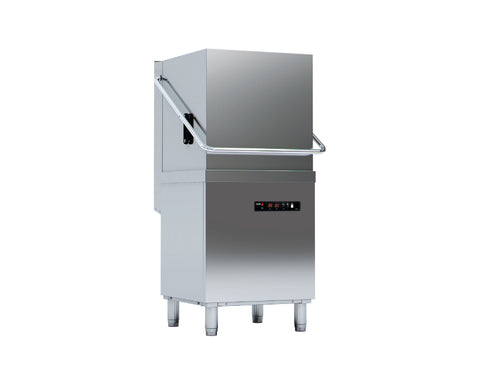

 Fagor Evo-Concept Pass-Through Dishwasher CO-142BDD
Fagor Evo-Concept Pass-Through Dishwasher CO-142BDD
630(W) x 750(D) x 1465(H)mm
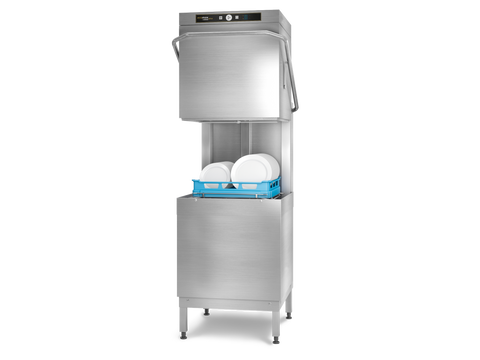

 Hobart ECOMAXPLUS Dishwasher - ECOMAXPLUSH615
Hobart ECOMAXPLUS Dishwasher - ECOMAXPLUSH615
711(W) x 1470(H) x 742(D)mm
711(W) x 1510(H) x 815(D)mm
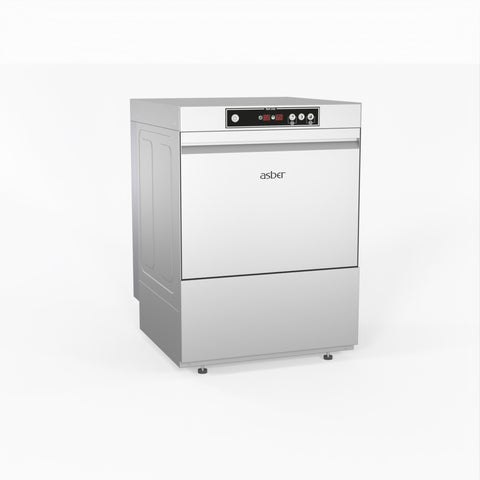

 Asber Tech Line Underbench Dishwasher GE-500BDD
Asber Tech Line Underbench Dishwasher GE-500BDD
600(W) x 600(D) x 820(H)mm

 Stainless Steel Dual Bench Mounted Pre Rinse Unit With 6" Pot Filler - T-3M53015
Stainless Steel Dual Bench Mounted Pre Rinse Unit With 6" Pot Filler - T-3M53015

 Stainless Steel Dual Bench Mounted Pre Rinse Unit - T-3M53007
Stainless Steel Dual Bench Mounted Pre Rinse Unit - T-3M53007

 Hobart Hygiene Tablets - 897954
Hobart Hygiene Tablets - 897954
1245(W) x 1995(H) x 915(D)mm
1345(W) x 1995(H) x 915(D)mm
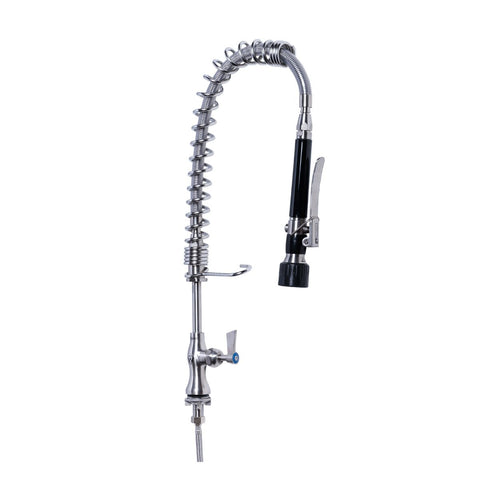

 Compact Single Bench Mount Pre-Rinse Unit - T-3M53100-C
Compact Single Bench Mount Pre-Rinse Unit - T-3M53100-C

 Compact Stainless Steel Wall Stops And Elbow Pre Rinse Unit With 12" Pot Filler - T-3M53822-C
Compact Stainless Steel Wall Stops And Elbow Pre Rinse Unit With 12" Pot Filler - T-3M53822-C
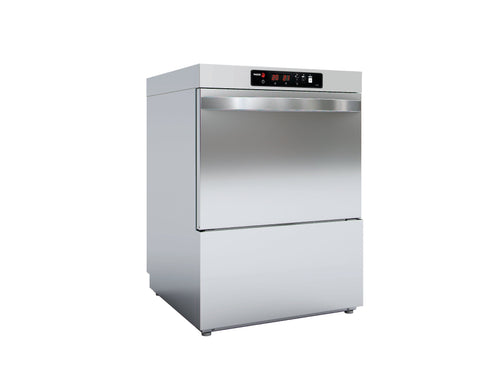

 Fagor Evo-Concept Undercounter Dishwasher With Drain Pump CO-502BDD
Fagor Evo-Concept Undercounter Dishwasher With Drain Pump CO-502BDD
600(W) x 600(D) x 830(H)mm


 Exposed Wall Mount Pre-Rinse Unit with Pot Filler - 12” pot filler - T-3M53473
Exposed Wall Mount Pre-Rinse Unit with Pot Filler - 12” pot filler - T-3M53473
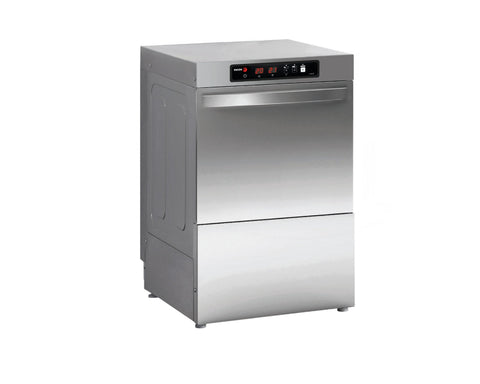

 Fagor Evo-Concept Glass Washer With Drain Pump And Detergent & Rinse Dispenser Cold Rinse CO-402BDD
Fagor Evo-Concept Glass Washer With Drain Pump And Detergent & Rinse Dispenser Cold Rinse CO-402BDD
470(W) x 520(D) x 720(H)mm

 Compact Stainless Steel Wall Stops And Elbow Pre Rinse Unit With 6" Pot Filler - T-3M53816-C
Compact Stainless Steel Wall Stops And Elbow Pre Rinse Unit With 6" Pot Filler - T-3M53816-C
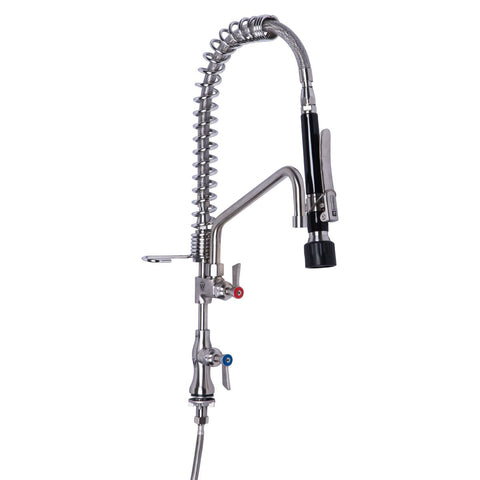

 Compact Stainless Steel Single Bench Mount Pre-Rinse with 12" Pot Filler - T-3M53112-C
Compact Stainless Steel Single Bench Mount Pre-Rinse with 12" Pot Filler - T-3M53112-C

 Hobart HYLINE COMBI Oven Cleaner - 10Litre - HLC-70
Hobart HYLINE COMBI Oven Cleaner - 10Litre - HLC-70

 Push Button Pillar Tap - 18 Second Timed Flow - T-3MSS-PT18PB
Push Button Pillar Tap - 18 Second Timed Flow - T-3MSS-PT18PB

 Stainless Steel Exposed Wall Mount Pre-Rinse Unit - T-3M53430
Stainless Steel Exposed Wall Mount Pre-Rinse Unit - T-3M53430

 Lever Handle Wall Mount Bubbler - T-3MSS-BUB90L
Lever Handle Wall Mount Bubbler - T-3MSS-BUB90L

 Stainless Steel Exposed Wall Tap Body With 8" Spout - T-3MEW08
Stainless Steel Exposed Wall Tap Body With 8" Spout - T-3MEW08
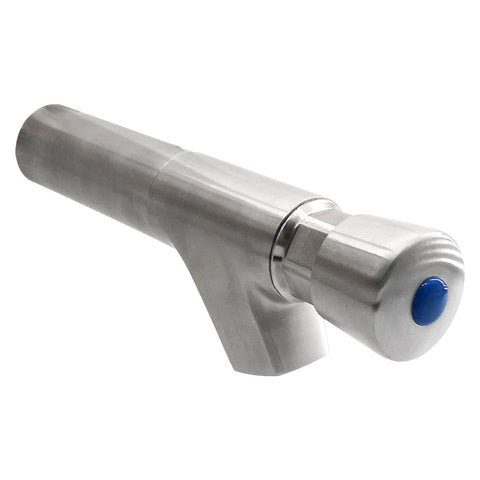

 Push Button Bib Tap - Adjustable Timed Flow - T-3MSS-BTAPB
Push Button Bib Tap - Adjustable Timed Flow - T-3MSS-BTAPB

 Compact Stainless Steel Exposed Wall Mounted Pre Rinse Unit - T-3M53430-C
Compact Stainless Steel Exposed Wall Mounted Pre Rinse Unit - T-3M53430-C
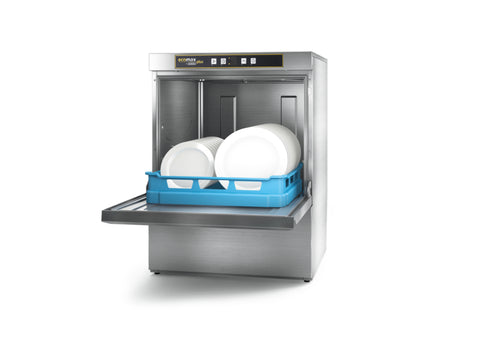

 Hobart ECOMAXPLUS Glass/Dishwasher - ECOMAXPLUSF515-D
Hobart ECOMAXPLUS Glass/Dishwasher - ECOMAXPLUSF515-D
600(W) x 820(H) x 600(D)mm
600(W) x 825(H) x 602(D)mm
600(W) x 825(H) x 603(D)mm

 Hobart HYLINE Rinse Aid - Fantastic For Glassware 5L - HLG-10005L - 1 Carton
Hobart HYLINE Rinse Aid - Fantastic For Glassware 5L - HLG-10005L - 1 Carton
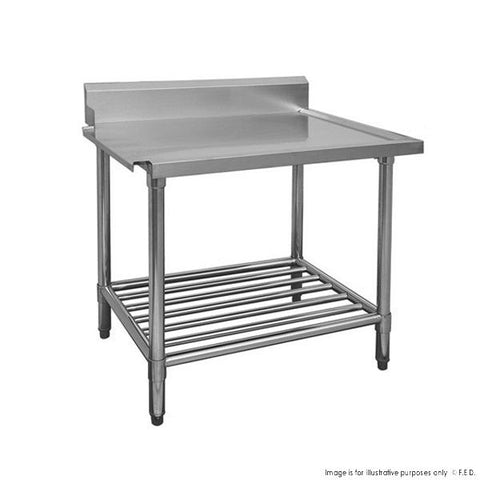

 Modular Systems WBBD7-A All Stainless Steel Dishwasher Bench Left Outlet - 600-1800mm Width - Left/Right Outlet
Modular Systems WBBD7-A All Stainless Steel Dishwasher Bench Left Outlet - 600-1800mm Width - Left/Right Outlet
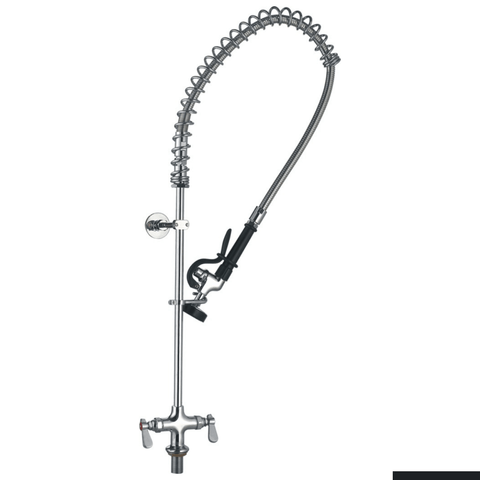

 Sunmixer Pre Rinse Unit with 510mm Riser and 1118mm Hose T98001-1
Sunmixer Pre Rinse Unit with 510mm Riser and 1118mm Hose T98001-1

 Sunmixer Deck Mounted Faucet with Wrist-Action Handle T20111
Sunmixer Deck Mounted Faucet with Wrist-Action Handle T20111

 Stainless Steel Wall Stops and Elbow with 8" Spout - T-3MCW08
Stainless Steel Wall Stops and Elbow with 8" Spout - T-3MCW08

 Push Button Pillar Tap - 6 Second Timed Flow - T-3MSS-PT6PB
Push Button Pillar Tap - 6 Second Timed Flow - T-3MSS-PT6PB
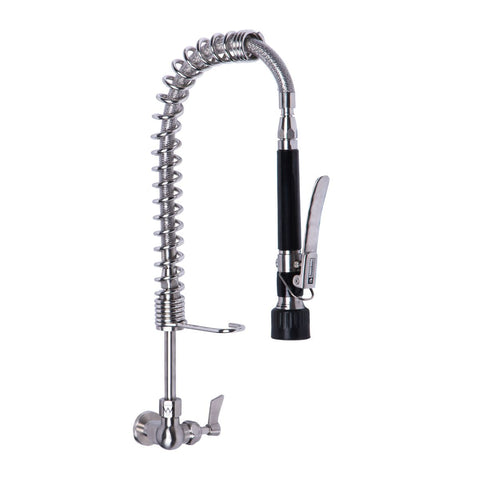

 Compact Stainless Steel Single Wall Mount Pre-Rinse - T-3M53700-C
Compact Stainless Steel Single Wall Mount Pre-Rinse - T-3M53700-C
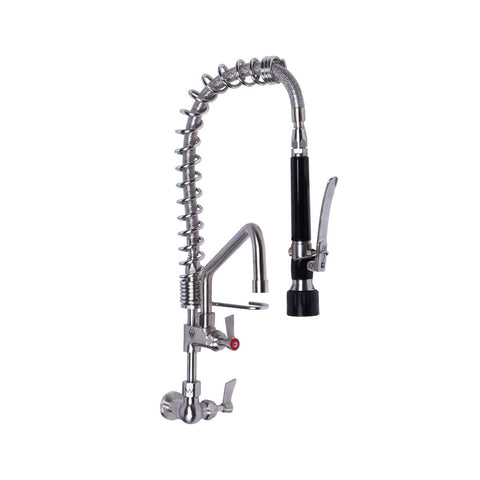

 Compact Stainless Steel Single Wall Mount Pre-Rinse with 12" Pot Filler - T-3M53712-C
Compact Stainless Steel Single Wall Mount Pre-Rinse with 12" Pot Filler - T-3M53712-C
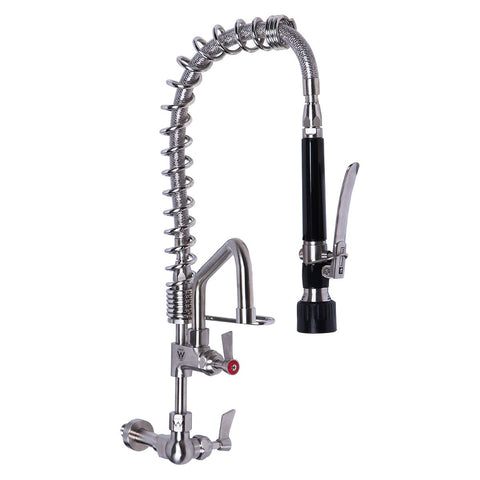

 Compact Stainless Steel Single Wall Mount Pre-Rinse with 6" Pot Filler - T-3M53706-C
Compact Stainless Steel Single Wall Mount Pre-Rinse with 6" Pot Filler - T-3M53706-C
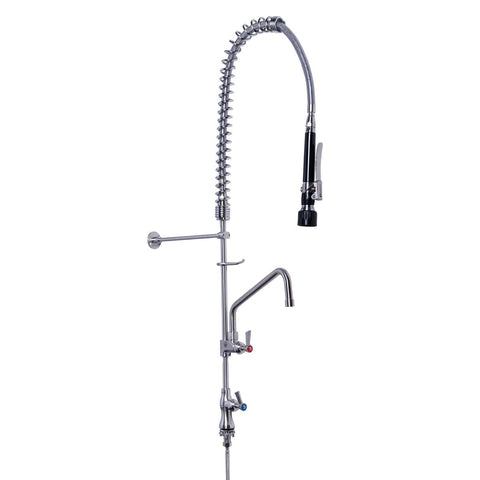

 Stainless Steel Single Bench Mount Pre-Rinse with 12" Pot Filler - T-3M53112
Stainless Steel Single Bench Mount Pre-Rinse with 12" Pot Filler - T-3M53112

 Stainless Steel Hob Mount Pre Rinse Unit With 6" Pot Filler - No Stops - T-3M53206
Stainless Steel Hob Mount Pre Rinse Unit With 6" Pot Filler - No Stops - T-3M53206

 Dual Bench Mount Body with 6" Spout - T-3MDH06
Dual Bench Mount Body with 6" Spout - T-3MDH06

 Hobart HYLINE Universal Dtergent - Hard Water - W/ Chlorine 5L - HLU-315L - 1 Carton
Hobart HYLINE Universal Dtergent - Hard Water - W/ Chlorine 5L - HLU-315L - 1 Carton

 Modular Systems All Stainless Steel Dishwasher Bench Left Outlet WBBD7-1200L/A
Modular Systems All Stainless Steel Dishwasher Bench Left Outlet WBBD7-1200L/A
1200(W) x 700(D) x 900(H)mm

 Modular Systems All Stainless Steel Dishwasher Bench Right Outlet WBBD7-0600R/A
Modular Systems All Stainless Steel Dishwasher Bench Right Outlet WBBD7-0600R/A
600(W) x 700(D) x 900(H)mm

 Dual Bench Mount Pre-Rinse Unit with 12" Pot Filler - T-3M53058
Dual Bench Mount Pre-Rinse Unit with 12" Pot Filler - T-3M53058

 Gooseneck Bench Mounted Infrared Sensor Tap - Battery Powered - T-3MSS-GHMST21B
Gooseneck Bench Mounted Infrared Sensor Tap - Battery Powered - T-3MSS-GHMST21B
No matter what kind of establishment you’re running or what you’re serving, commercial dishwashers are must-have appliances. Designed to efficiently and effectively clean and sanitise high volumes of dishes, cutlery and glassware, they help to keep your kitchen running at top capacity.
At Restaurant Equipment Online, we have a broad range to choose from with models to suit every establishment’s needs. Whether you want a compact model for a cafe or large high-capacity commercial dishwashers for your restaurant kitchen, you’ll find it here. Save time and labour hours by finding the perfect addition to your space, ensure you always have fresh plates, cutlery and glassware and explore the collection now. Shop online and get your dishwasher delivered anywhere in Australia with our nationwide shipping.
There are four key models of commercial dishwashers available, each with different capabilities and dimensions, meaning it’s easy to find an option that suits the needs of your business.
If you’re running a bar or need to be able to clean a high volume of glassware quickly and efficiently, glasswashers will likely be a valuable addition to your workspace. They’re small and compact, typically installed under benches for fast and easy access. Specially dedicated to glassware only, they’ll give you exceptional results and sparkling clear glass with every wash cycle.
When it comes to dishes and cutlery, underbench dishwashers offer a compact and effective means of getting everything clean. They’re ideal for smaller establishments like cafes and measure a similar size to a residential dishwasher but with the speed and efficiency of a commercial model. Due to their compact size, they don’t typically require steam extraction, making them convenient for smaller spaces.
For larger kitchens with higher demands and greater turnover, passthrough dishwashers are the next size and step up. They require more power to run and will typically also require steam extraction. Passthrough dishwashers are capable of cleaning anywhere from 700 to 900 dishes an hour, along with cutlery and glassware, ensuring you never run out at peak hours.
Finally, the largest and most comprehensive models are conveyor dishwashers. These are ideal for kitchens that need to wash over 1,000 dishes a day and are custom-made, modular commercial dishwashing setups.
Additionally to dishwashers themselves, you may also want to consider adding a pre-rinse station to your kitchen, with taps and rinse jets to remove food residue from plates before putting them in to be cleaned.
Choosing the right model of commercial dishwasher for your kitchen will come down to two key factors: how much space you have available and how many dishes you need to be able to clean.
We recommend measuring the space you have available, ensuring you account for the plumbing and total footprint of the dishwasher when it’s open. You’ll need to make sure there’s adequate space to move around the dishwasher while the door is open to maintain a good workflow in your kitchen.
From there, you can look at different models, their functionality and capacity and find one that’ll keep up with the demands of your kitchen. As a general guide, for smaller capacities and turnover, if you have a cafe or restaurant with 20 seats or less, an underbench option may be enough. For 30 to 100 seats, a passthrough dishwasher is a better choice to ensure you have enough capacity. For anything larger than 150 seats, you’ll want to look at a custom conveyor commercial dishwasher.
Commercial dishwashers don’t need to be set at certain temperatures, the automatic wash settings they come with will adjust the heat of the water for you. They’ll cycle through different temperatures at different stages of the wash cycle to ensure that your dishes are clean, free of food and oil and completely sanitised by the time the wash cycle is done.
The wash cycle is typically around 55℃ while the rinse cycle with fresh water to remove any soap residue is around 80℃, making it quick and efficient when it comes to getting your plates and dishes ready for the next round of customers.
While commercial dishwashers can get through high volumes of dirty dishes, they don’t typically require vast amounts of water to do so. The total volume will depend on the size and brand of dishwasher you’ve chosen, Hobart is an especially good choice for effective water use. Some also have additional functionality that helps to recycle steam that’s generated and will use it for the rinse cycle.
Yes, as with any commercial kitchen appliance, you’ll need to do regular maintenance to extend the life of your dishwasher and keep it running smoothly. The key thing you’ll need to do most days is check the filters to ensure they aren’t getting clogged with leftover food debris or oil buildup.
Additionally, you’ll also want to check the plumbing connections periodically. If you notice that water is pooling under or around your dishwasher, this doesn’t always mean something is wrong or broken. Sometimes, it’s just the piping has come loose with regular wash cycles and needs to be tightened up to prevent leakages.
Each commercial dishwasherhas slightly different cleaning requirements, which the manufacturer's guidelines for the model you’ve chosen provide more information on.
Yes, you can absolutely wash pots and pans in a commercial dishwasher if they can fit. If the model you have is too small or doesn’t have trays that can easily be adjusted to accommodate larger items, you can also get dedicated pot dishwashers to do the job instead.
Yes, certain models will require you to have an exhaust canopy. Generally, if the model you choose is 8 kilowatts or more, which is standard for most passthrough dishwashers and conveyor dishwashers, they’ll need ventilation.
One way to work around needing to install additional air venting is to look for commercial dishwashers with Vapostop functionality. This serves to capture the steam internally, with some models recycling the water during the wash cycle to rinse your dishes.
You’ll want to make sure you’re using dishwashing chemicals that are specifically designed for commercial use. We also recommend adding rinse aid to your wash cycles to help everything dry quickly and leave you with streak-free glassware.